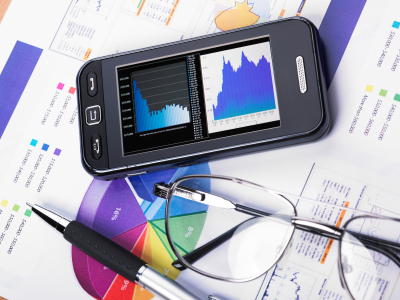Day to day life is full of obstacles and dealing with them on a frequent basis can make you feel uptight, drained of energy and motivation and sometimes at your wits end. While we all accept stress as an inevitable part of life and it’s suggested that a little bit is actually good for us, studies suggest unhealthy levels of stress are increasing and negatively affecting our health.
Managing stress is imperative for your overall health and wellbeing. The good news is there are now apps specifically designed to help you minimise your stress. Yes, it almost seems there is nothing smart phones and tablets can’t do. Here are some apps you may find useful in helping you to manage everyday stress.
You can’t deal with an issue if you don’t know what is causing it. Stress Tracker helps you keep tabs of your encounters by isolating the problem moments or situations so that you can focus on managing or avoiding them completely. Available on iPhone/iPad.
Get effective stress relief in 5 minutes. Providing guided breathing exercises along with calming music that stimulates relaxation and tension relief, this app can improve many facets of wellbeing. Available for both iPhone/iPad and Android.
Take a test developed by clinical psychologists that will give you an overall stress score. This app can provide insight by examining what specific areas stress is affecting you (e.g. interpersonal, situational, control etc). Results with detailed descriptions are provided, as well as recommendations on what can be done to reduce this stress. Available on iPhone/iPad.
This app allows you to enjoy the deep relaxation, stress relief and benefits of meditation without any previous experience. Choose between two relaxing audio’s taken from Richard and Mary Maddux’s popular Meditation Oasis podcast, with the option of listening with or without music. Available on Android.
Did you know you can get an idea of your stress level by actually looking at the physical changes in your body? This app uses the iPhone’s camera to measure your heart rate and heart rate variability to determine your current state, then suggests ways to correct your course and find a release. Available on iPhone/iPad (‘Stress Check by Azumio’ is a similar app for Android).
Ambiance is a unique ‘environment enhancer’ that helps you create the perfect atmosphere to focus, relax or reminisce. It has over 2,500 different sounds for relaxation, so it’s easy to find the ambiance that suits your mood and situation. Enables you to create customised mixes, your own playlists or wake up to desired sounds. Available on iPhone/iPad.
While some may find it ironic that technology can help relieve stress, when in many cases it is technology itself that is contributing to our chronic stress, these apps can provide convenient and simple ways to improve overall health.
So embrace the idea of using technology to combat your stress and download an app today.
1 Australian Psychological Society, 2012 2 American Psychological Association Source: Capstone Financial Planning
Designed by Webtastic Designs.